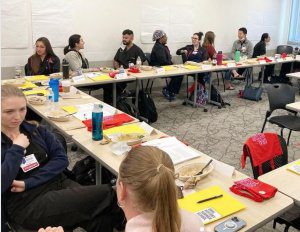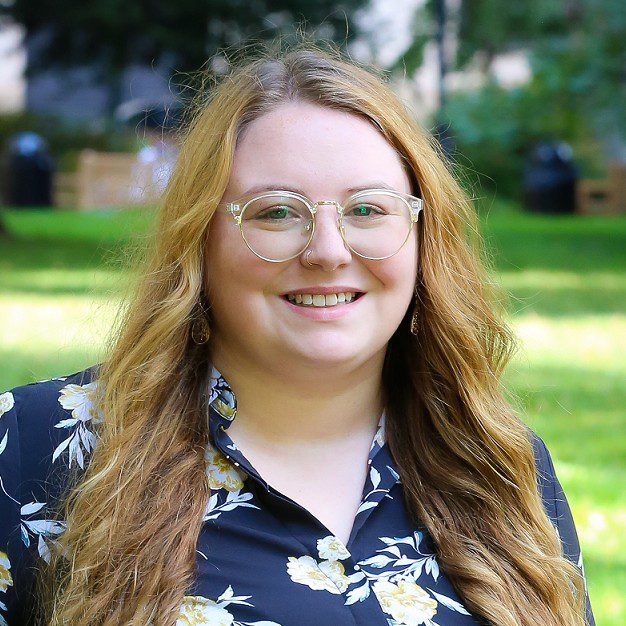Communicate, Connect, and Care: A Humanistic Approach

May 7, 2024
In pursuit of enhancing trust and equity within internal medicine training, Cooper Medical School of Rowan University and Cooper University Health System, under the leadership of Britt Dahlberg, PhD, and Jenny Melli, MD, have embarked on a transformative journey to bolster communication skills, fortify interprofessional team dynamics, and raise awareness of diverse pathways into medicine. Funded by the Building Trust Through Diversity, Health Care Equity, Inclusion, and Diagnostic Excellence in Internal Medicine Training grant program, this initiative highlights skillful and human-centric approaches to health care education.
 Internal medicine and primary care residents and licensed practical nurses (LPNs) participated in an intensive oral history training workshop to learn active listening and communication skills that not only help them foster trust with patients but also strengthen the relationships among and between themselves and other members of the care team. Participants learned new content, watched demonstrations, and practiced skills during each workshop session. Afterwards, each participant selected one skill they learned that day and set one small goal of where they wanted to try to apply it before the next session. One week later, the group met online for a second day of training to debrief on their applications of the skills, explore future applications, and practice conducting oral history interviews in pairs.
Internal medicine and primary care residents and licensed practical nurses (LPNs) participated in an intensive oral history training workshop to learn active listening and communication skills that not only help them foster trust with patients but also strengthen the relationships among and between themselves and other members of the care team. Participants learned new content, watched demonstrations, and practiced skills during each workshop session. Afterwards, each participant selected one skill they learned that day and set one small goal of where they wanted to try to apply it before the next session. One week later, the group met online for a second day of training to debrief on their applications of the skills, explore future applications, and practice conducting oral history interviews in pairs.
“I was so impressed at how participants took the principles and eagerly integrated them into their own work with patients,” Dahlberg shared. One resident also reflected that “[ever since the training] I’ve been playing around with better ways to ask questions that allow patients to think and share.” Residents discovered new ways to begin and maintain conversations with patients. Another resident said that “messing with it [the Oral History approaches], and tweaking things, is something I really like – it’s as if we really learned a set of skills, not a set of catch phrases, so you can modify it, try it in different settings.”
The team has also explored the use of expressive art. They designed and held an art-making session with patient-artists, led by an experienced art facilitator, in which the group listened to the audio recordings of residents’ oral history interviews, and participated in an expressive painting session using what they heard as inspiration. The art facilitator compiled the group paintings into two collage compositions for display, which were then unveiled in Cooper University Health Care’s Urban Health Institute waiting room. During the art reception, one of the patient-artists shared that their “favorite thing was really getting to hear the doctors’ stories – so often physicians are just put on a pedestal, but this felt like seeing them as people too, there’s more connection.” It’s just one reminder of the connection between health care clinicians and the communities they serve.
The impact of these initiatives is encouraging, with pre- and post-workshop surveys revealing positive shifts in participants’ perspectives. Residents in particular have expressed enthusiasm for the innovative approach, noting improvements in communication dynamics and strengthened collegial relationships. The project has served as a catalyst for organizational learning, fostering resilience and adaptability in patient care.
Moving forward, the project aims to expand its reach and impact through continued dissemination of findings. Dr. Dahlberg and her team remain committed to fostering meaningful discourse on equity and trust in health care, laying the groundwork for broader systemic change.



